Setting off for new waters on the way to a master's degree
Students study the effects of light pollution on marine life in ten different countries for their theses
For the 21st time, the research and education program "Global Approach through Modular Experiments" (GAME) of GEOMAR Helmholtz Centre for Ocean Research Kiel sets out on international paths. This year, 19 German and international Master's students in Finland, Iceland, Israel, Japan, Croatia, Chile, Malaysia, Portugal, Spain and Cabo Verde are investigating for their degree the question of whether light pollution affects the settlement behavior of larval benthic invertebrates. These include organisms that colonize solid surfaces, such as rocks, quay walls or ship hulls, such as bivalves, barnacles, sea squirts, bryozoans and even cnidarians. The program has now begun its experiments in all countries.
Many benthic invertebrates are sedentary in their adult stage. To reproduce, they have larval stages that disperse in the water and then in turn become resident elsewhere. Surface colonization is an important process for this cycle. The question that has been little studied scientifically is whether and to what extent larval settlement behavior changes when surfaces are illuminated by artificial light at night. The GAME program now aims to study precisely these processes in a global comparison for the first time. The species involved are widespread and important for the diversity and composition of marine communities. Some of them are filter feeders that clean the water column of pollutants.
For the experiments, PVC panels are suspended in the ocean so that locally occurring species can settle on them. Part of the plates are then illuminated with artificial light at night, while another part is left in the dark. There will be two experiments of this type at each site, one using white LED light and the other using yellow LED light. This is to clarify whether yellow light, which encompasses a smaller portion of the spectrum, may have less effect on larval behavior.
Previously in 2021 and 2022, GAME researched the effects of light pollution on marine grazers such as sea urchins and snails, as well as mussels, which are important filter feeders.
"These projects showed that nighttime artificial light may well alter feeding rates of sea urchins and affect filtration efficiency and the ability to form byssus filaments in mussels. This year, for the first time, we are now looking at the effects of artificial light on entire communities, because if larval settlement behavior changes, the structure of the emerging communities will also change. We now want to understand the significance of these processes," emphasizes Dr. Mark Lenz, marine ecologist at GEOMAR and coordinator of the GAME program. This will be followed in 2024 by a study of the effects of light on macroalgae, another important component of coastal ecosystems.
Background: GAME
GAME enables young scientists to study the effects of global change on coastal seas while collecting data for a master's thesis. Binational teams of two conduct identical experiments over a period of six months at different locations around the world. The preparation and follow-up of each project takes place together with all participants at GEOMAR in Kiel, and the entire project lasts from the beginning of March to the end of December. In preparation, the approach to ecological questions is worked out and the analysis of data with biostatistical methods is deepened. In the follow-up phase, all results are comparatively evaluated, interpreted and prepared for publication. In GAME, students train their ability to communicate science in the form of presentations and in scientific journals. They are integrated into a global network that can serve as a starting point for collaborations and the exchange of experience and knowledge again and again in their later careers. The application period to participate in GAME for 2024 has already begun.
Project Funding:
GAME is supported by the Klaus Tschira Foundation as well as Bornhöft Industriegeräte, Hydro-Bios, Fairplay-Management, LimnoMar, Müllverbrennung Kiel, Offcon and SubCtech.
GAME relies on the support of funders and welcomes existing and future interest.
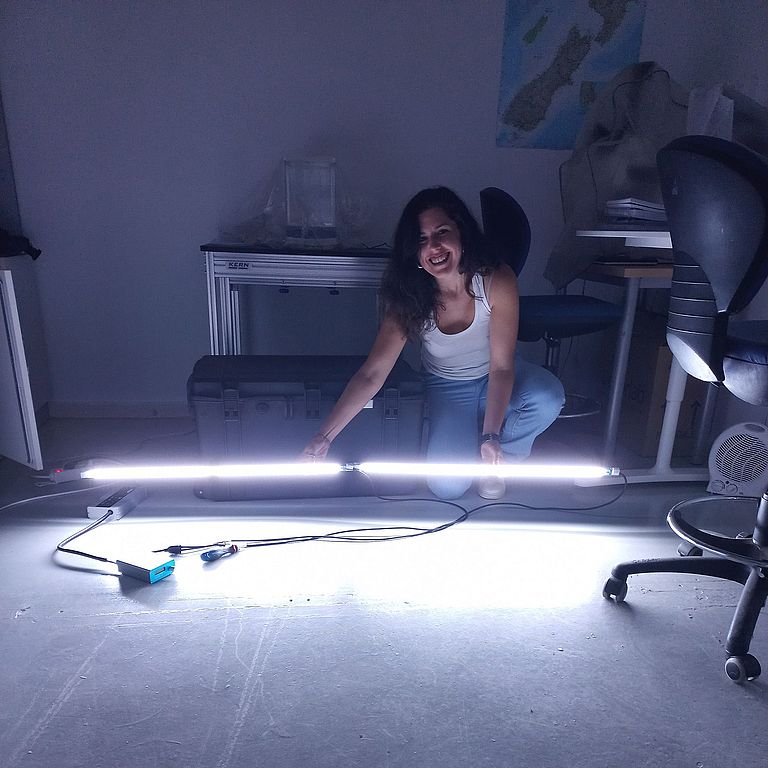
Light test in the laboratory in Spain. Photo: Chiara Dieing/GEOMAR
![[Translate to English:] Versuchsaufbau im Wasser in Israel](/fileadmin/_processed_/a/e/csm_GAME-2023_Israel-02_c_GAME_GEOMAR_738fc0b0a1.jpg)
Experimental setup in water in Israel. Photo: Sophia Walter/GEOMAR
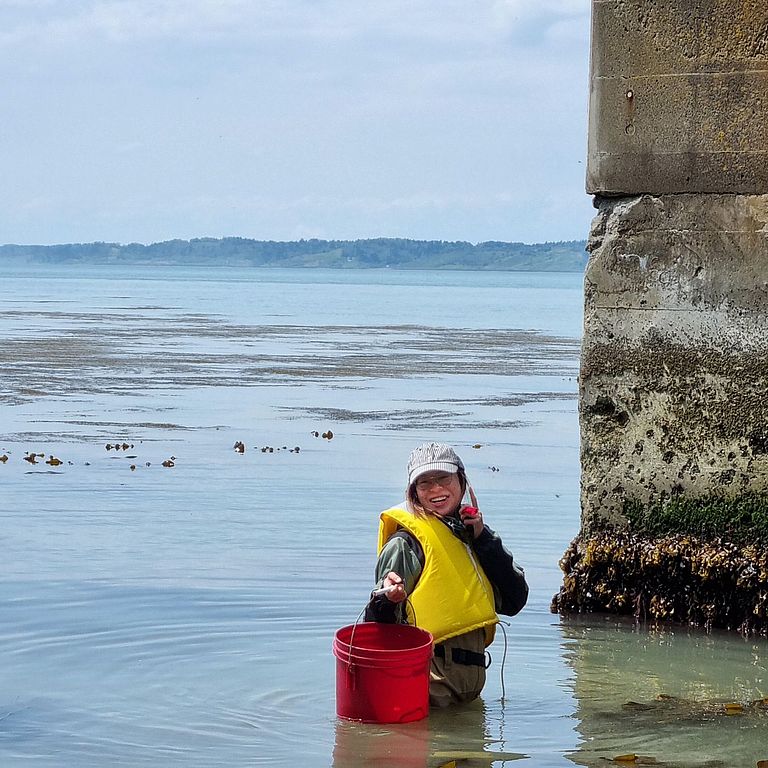
Scientist in water in Japan. Photo: Lilli Lenzmann/GEOMAR
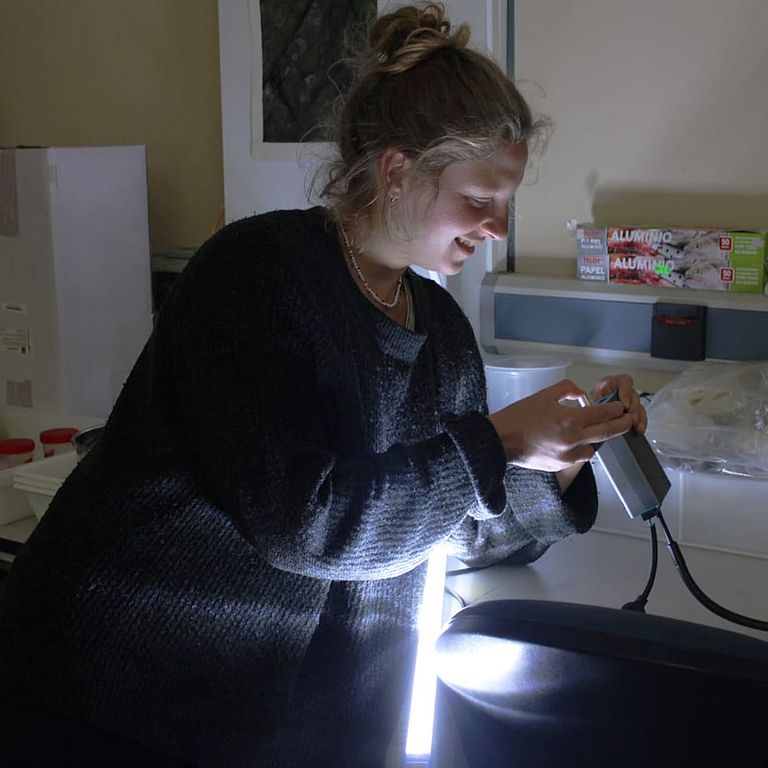
Light test in the laboratory in Spain. Photo: Raquel Cerrato/GEOMAR
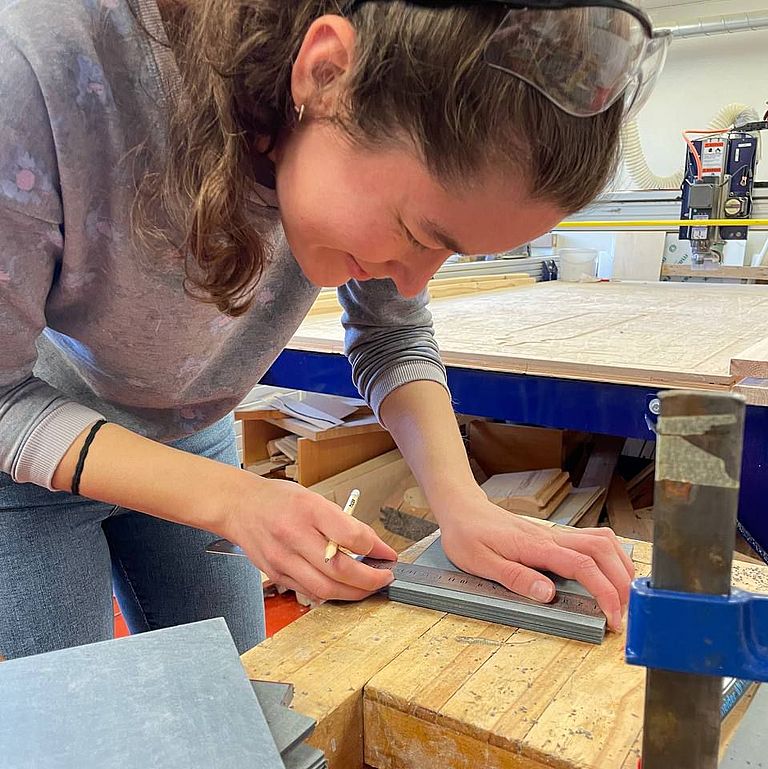
Test setup in Iceland. Photo: Julia Mangliers/GEOMAR
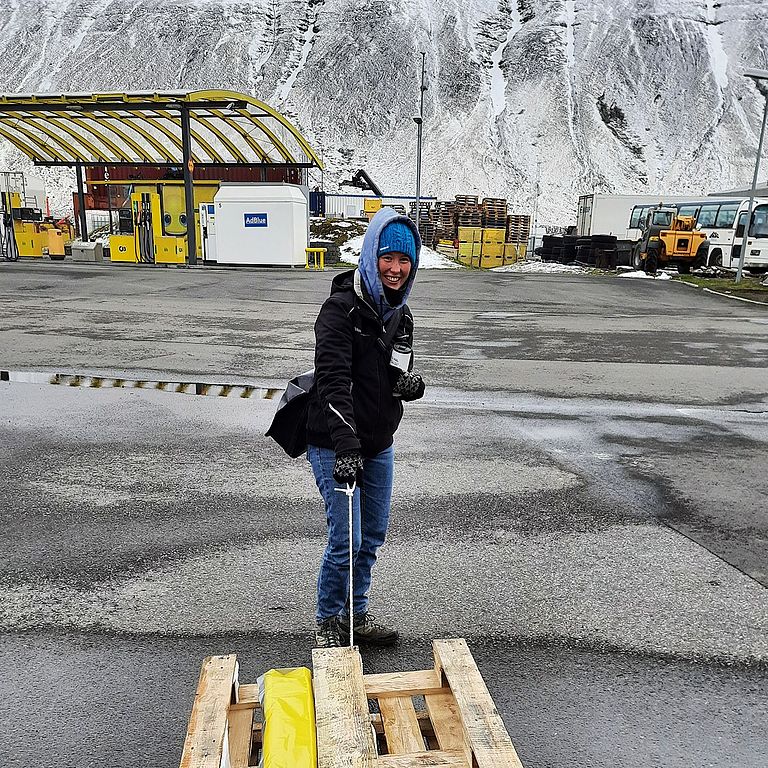
GAME in Iceland. Photo: Marlene Oertel/GEOMAR
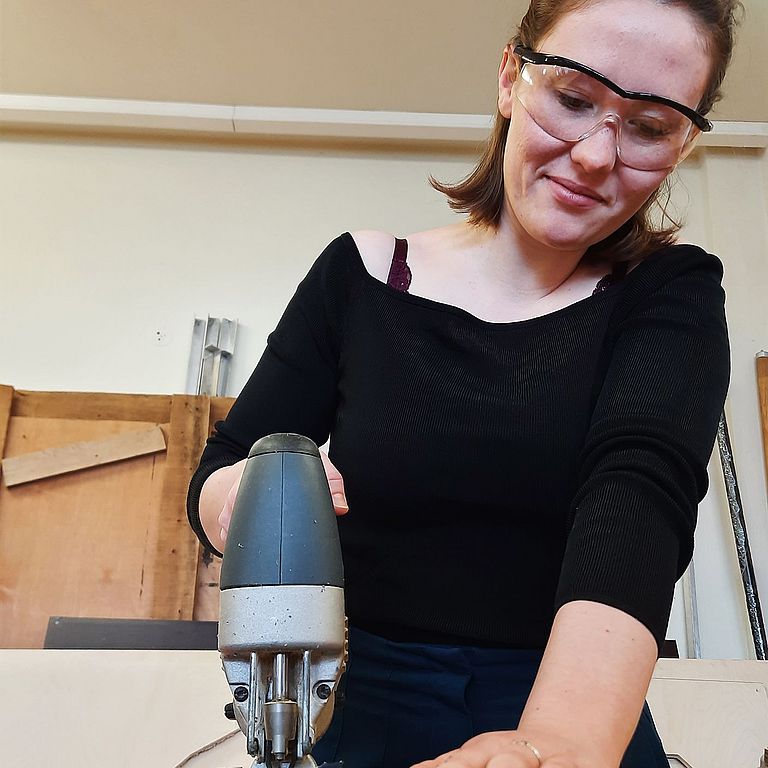
Assembling the scientific experimental setup in Israel. Photo: GAME/GEOMAR
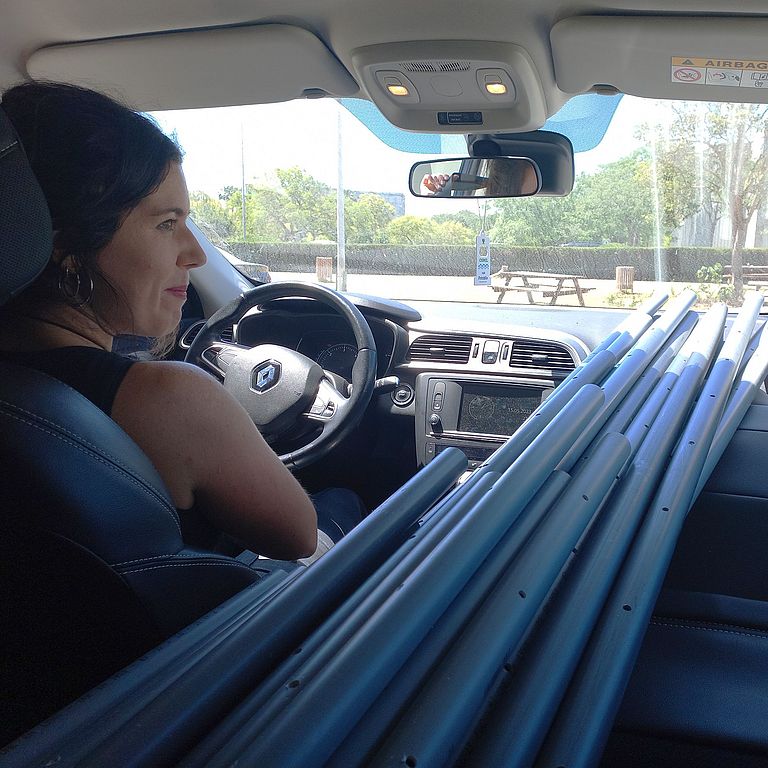
Getting individual parts for the test setup in Spain. Photo: Chiara Dieing/GEOMAR
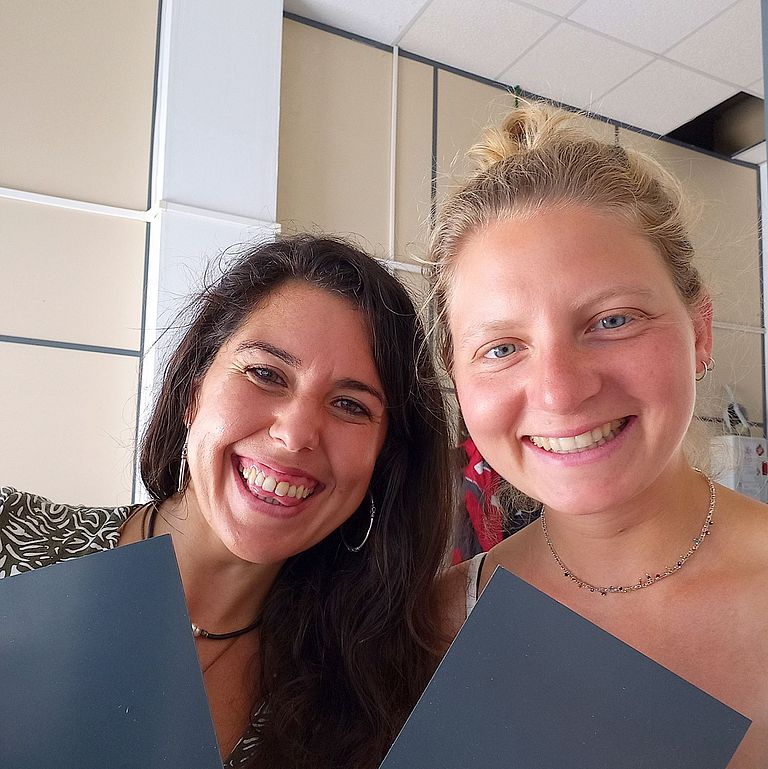
Working on individual parts for the test setup in Spain. Photo: Raquel Cerrato und Chiara Dieing/GEOMAR
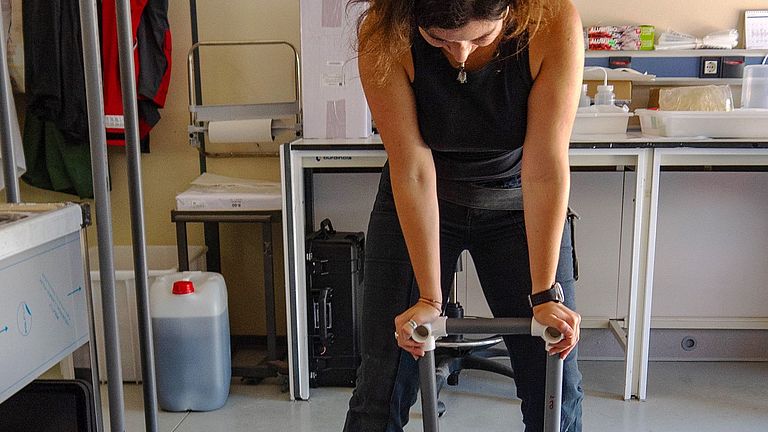
Setting up the structure for the experiments in Spain. Photo: Chiara Dieing/GEOMAR


